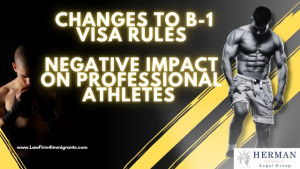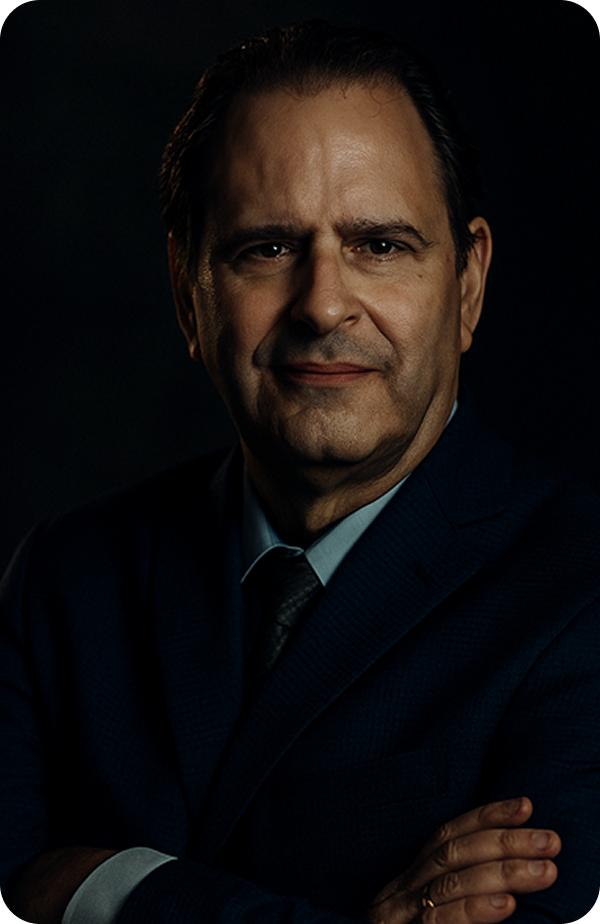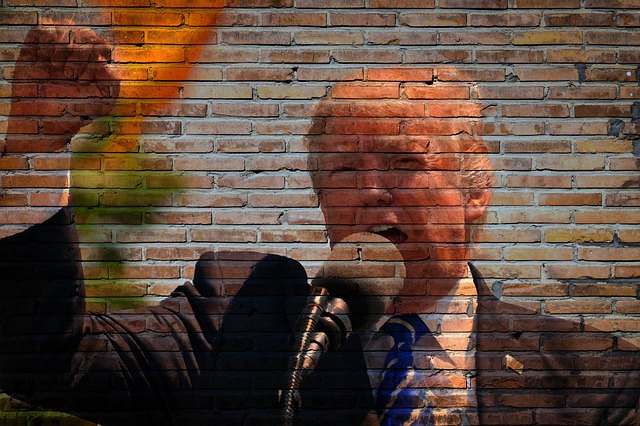By Richard T. Herman, Esq., Herman Legal Group
At a Glance: 2025 B-1 FAM Update
- Effective Date:September 17, 2025
- Issued By:U.S. Department of State – Bureau of Consular Affairs
- Citation:9 FAM 402.2-5(C)(4)
- Key Change: Tightens rules for B-1 eligibility for professional athletes and teams; adds clarity for support staff and amateur tryouts.
- Reference Doc:AILA Doc. No. 25102202 (Posted Oct 22, 2025)
- The FAM revision also clarifies eligibility for business visitors in the context of professional sports and support staff. The update specifies that personnel encompass a wide range of roles, including coaching staff, medical support, and technical specialists, all of whom may be eligible under the new rules.
Overview of the Changes
| Category | Before (Pre-Sept 2025) | After (Sept 17 2025 Revision) |
|---|---|---|
| Prize-Money Athletes / Teams | Broad flexibility to compete for prize money in B-1 status without clear foreign base proof. | Must prove (1) principal place of business abroad; (2) salary accrues abroad; (3) team is a foreign sports team that is part of an international league or sport has international dimension; (4) participation in an athletic competition or athletic event. |
| Support Staff | No specific rule – often admitted informally as B-1 Visitors. | Formal B-1 eligibility for “necessary personnel” supporting foreign-based athletes/teams with foreign income and activity. Support personnel must demonstrate their role is essential for the athletic competition and are eligible if they are integral to the athletic event. Coaching staff and those providing support services are now explicitly included among eligible personnel. |
| Amateur Tryouts | Only amateur hockey players (NHL MOA context). | Expanded to all sports – B-1 allowed for amateur tryouts (no salary beyond incidental expenses). |

1️⃣ Prize Money and Professional Athletes and Teams — 9 FAM 402.2-5(C)(4)(a)
Fast Fact:
The 2025 revision narrowed B-1 eligibility for athletes competing for prize money.
Expert Tip:
If your athlete trains or is paid in the U.S., it’s no longer safe to rely on B-1.
Why It Matters:
- Must prove the principal place of business abroad – training and operations cannot primarily occur in the U.S.
- Must show salary principally accrues abroad – not just prize money won in U.S. events.
- Teams must be part of an international league or demonstrate global competition.
- Professional athletes must show their principal place of business is in a foreign country to qualify for a B-1 visa.
Key Populations Affected:
- Post-collegiate athletes (training in Florida/Oregon clubs)
- Independent athletes without foreign income streams
- Low-revenue sports (rowing, fencing, equestrian, weightlifting)
Practical Consequences:
- “Bridge” use of B-1 between NCAA and pro status is no longer viable.
- Consular officers now have explicit authority to deny B-1 visas for athletes based in U.S. training programs.
Important Note:
For athletes receiving “appearance fees,” the FAM treats these as salary – not prize money – and disqualifies B-1 eligibility.
Alternatives:
- Apply for P-1 Visa for Internationally Recognized Athletes. A P petition is required for internationally recognized athletes seeking P-1 classification. In addition, a separate petition may be necessary for support personnel or group members who do not meet the group eligibility criteria. In such a case, where two or more persons are seeking to provide entertainment services as a group, specific eligibility criteria must be met for the P-1B visa classification, including requirements for members of an internationally recognized entertainment group. Family members of P-1 visa holders may apply for derivative nonimmigrant status (P-4) and are typically granted the same period of admission as the principal applicant.
- Consider O-1 Visa for Individuals with Extraordinary Ability
2️⃣ Support Staff — 9 FAM 402.2-5(C)(4)(b)
Key Insight:
The DOS now recognizes the vital role of coaches, analysts, medical staff, and team technicians supporting foreign-based athletes.
Why It’s Positive:
- Formalizes B-1 entry for support staff who work abroad for foreign teams or athletes.
- Aligns practice with existing patterns (e.g., Canada-based teams crossing for U.S. events).
Potential Hurdles:
- “Necessary” is not precisely defined – proof must show the role is essential for athlete/team performance.
- Officers will require evidence of foreign salary and foreign work relationship.
Practice Pointers:
- Update template letters to quote 9 FAM 402.2-5(C)(4)(b).
- Prepare staff to explain their function in plain terms to non-sports officers.
- Keep foreign payroll documentation ready.
Bottom Line:
This is a welcome clarification ahead of the 2026 World Cup and 2026 Winter Olympics hosted in North America.
3️⃣ Amateur Tryouts — 9 FAM 402.2-5(C)(4)(c)
Fast Fact:
No longer limited to hockey – applies to all sports.
Why It’s Beneficial:
Amateur athletes can now attend U.S. tryouts with B-1 status if they receive only incidental expenses.
Essential Info:
- No formal MOA required, but teams must confirm in writing that the athlete will not be paid beyond expenses.
- If the athlete is hired, they must switch to P-1or O-1 status.
Expert Tip:
Use invitation letters stating that if a professional offer arises, the athlete will depart and re-enter in the correct classification.
Referees & Officials — 9 FAM 402.2-5(C)(10)
As of April 2025, referees and technical officials are eligible for B-1 entry when they officiate international events and are paid abroad. This helps ensure clear entry for Olympic-level events and global competitions. Referees, judges, and other technical officials qualify for B-1 visas when working at U.S. competitions with an international dimension, provided they are paid from abroad.
Reference: April 2025 FAM Update for Officials
Entertainment Groups and Culturally Unique Programs
The U.S. immigration system recognizes the vital role that internationally recognized entertainment groups and culturally unique programs play in fostering global cultural exchange. For groups and individuals seeking to perform, teach, or coach in the United States, the P-1B and P-3 nonimmigrant classifications offer tailored pathways that reflect the unique needs of the entertainment and cultural sectors.
Exceptions to the standard recognition requirements may apply to circus personnel, and eligibility for group visas may also depend on whether the group members have provided the same or similar services together for a sustained period.
Visa Reciprocity & Processing Trends
In recent years, visa reciprocity and processing trends have shifted, especially for visitor visas such as the U.S. B-1 Visitor Visa. The validity period for athletes and support staff may differ depending on the applicant’s country of citizenship, and these rules can also affect individuals with ties to more than one country. Below is a comparison of B-1, O-1, and P-1 visa validity periods for select countries:
| Country | B-1/O-1/P-1 Visa Validity (2025) |
|---|---|
| Nigeria | 3 months |
| China | 3 months |
| Germany | 12 months |
| Canada | 10 years |
Applicants who have provided similar services abroad may experience different processing times or visa validity periods depending on their country of citizenship.
Need to Know:
Shorter visa validity means athletes must plan for frequent renewals and early scheduling at U.S. Embassies & Consulates.
Strategic Guidance for 2025 and Beyond
| Challenge | Action Plan |
|---|---|
| B-1 no longer viable as bridge status | Transition to O-1 or P-1 early. |
| Documentary burden | Gather foreign tax records, contracts, and proof of training abroad. Ensure all documentation complies with Department of Homeland Security regulations and requirements under the Immigration and Nationality Act. |
| Employment restrictions for family members | Family members of O-1 or P-1 visa holders (such as those on O-3 or P-4 visas) cannot accept employment in the U.S. unless they independently obtain employment authorization. If employment is desired, they must apply for and receive separate employment authorization from USCIS before starting work. |
| Uneven consular interpretations | File from home country when possible; avoid third-country processing. |
| Cost & equity issues | Seek governing body letters or federation support for O-1/P-1 petitions. Seek legal guidance—consulting an attorney experienced in sports immigration matters is recommended to address your specific immigration matter and ensure compliance with the Nationality Act and Department of Homeland Security procedures. |
Bottom Line
The September 2025 FAM revision represents a turning point in sports immigration: Many changes to the B-1 visa eligibility criteria were detailed in updates to the Foreign Affairs Manual on September 17, 2025.
- Prize-money athletes face stricter proof of foreign ties.
- Support staff and referees gain clarity on visitor eligibility.
- Amateur athletes receive expanded tryout access – but only for non-paid engagements.
- Athletes coming to the United States solely for competition must meet the new eligibility criteria under the recent policy changes.
For most athletes, the safe long-term path is now through P-1 or O-1 classification, not B-1.
Comparison Guide: Top Sports & Athlete Visa Law Firms (2025)
| Law Firm | Specialty | Notable Details & Coverage |
|---|---|---|
| Herman Legal Group | 30+ years of U.S. immigration practice; handles P-1, O-1, and EB-1 cases for athletes and teams nationwide. | Headquarters in Cleveland, OH and Columbus, OH. Multilingual team; offers virtual consultations nationwide. |
| Cho Law LLC | Athlete and entertainer visa specialist (P-1/O-1/EB-1). | Based in New York / New Jersey; represents global sports clients. |
| Sherrod Sports Visas | Boutique sports immigration firm serving athletes and coaches. | Focus on P-1A/P-1S and O-1A strategies for international teams. |
| McEntee Law Group | Global sports immigration for athletes and support staff. | National reach; clients include musicians and sports organizations. |
Expert Comparison:
For Ohio-based teams and athletes, Herman Legal Group offers the most localized advantage and broad U.S. representation. For elite international athletes seeking high-profile visas, firms like Cho Law or Sherrod Sports Visas provide niche experience.
Plan Ahead for 2026 Events
- FIFA World Cup 2026 Host Schedule
- U.S. Olympic Committee Events Calendar
- USCIS Processing Times – Form I-129 (P-1/O-1)
When planning for major international sporting events in 2026, it is important to consider that a reciprocal exchange program is a formal arrangement between the United States and foreign states that can facilitate participation for artists, entertainers, and athletes. Such reciprocal exchange programs, often used under visa categories like the P-2 nonimmigrant, support international cultural and artistic exchange and can help streamline the visa process for those involved in these events.
Need to Know:
Expect longer processing times for P-1/O-1 visas ahead of major sporting events.
Book a Consultation

For personalized advice on the 2025 B-1 FAM revisions or athlete visa strategy, schedule a consultation with Herman Legal Group today:
👉 https://www.lawfirm4immigrants.com/book-consultation/
Key Takeaways
- B-1 eligibility now demands clear foreign base and foreign income proof.
- Support staff and officials benefit from new clarity but must document necessity.
- Amateur tryouts expanded to all sports – no salary allowed.
- P-1/O-1 are the new gold standard for athletes intending to compete or earn in the U.S.
- Group-based visa eligibility for an entertainment group requires that persons established as members demonstrate a substantial relationship and a sustained and substantial period of membership, typically meaning at least 75% of the group has maintained a sustained and substantial relationship with the group for a substantial period (at least one year).
- Note: Under the COMPETE Act, special circumstances may allow for waivers of the standard recognition and membership requirements for entertainment groups.
- Seek legal guidance early to avoid B-1 denials and travel interruptions.




